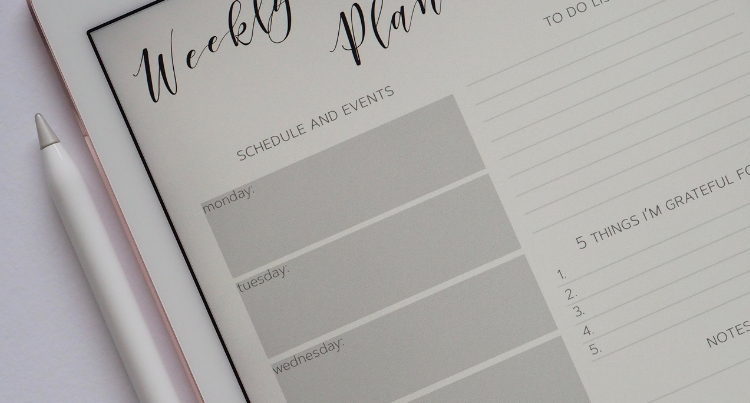New Year’s resolutions are always a bit of a minefield. We make them because we want things to get better — but somehow, sticking to them always ends up being harder than we think.
The truth is, following through on resolutions has a lot to do with the kind of resolutions you make. When you take a moment to be thoughtful – about your goals, your habits, and what really matters to you – you set yourself up for a year that actually feels like progress.

The start of a new year always brings a spark of energy – that sense of a fresh page, full of hope and opportunity. Resolutions are a fun way to imagine what this next chapter might look like. Who knows what’s around the corner?
And here we are, stepping into the new year. After a few unpredictable years, this one feels like a chance to reset, refocus, and maybe even dream a little bigger. So let’s make the most of it.
Here’s how to choose your resolutions – whatever they may be – and actually stick to them.
Why New Year's resolutions matter
In hospitality, every year brings new challenges — from adapting to technology to meeting rising guest expectations. Setting clear, achievable goals helps you stay ahead, grow your confidence, and lead your team with purpose. Resolutions aren’t just about self-improvement — they’re about taking charge of your future.
1. Make a list of things you wish were better
No, seriously – just write them all down. Big or small. From “drink more water” to “become a general manager.”
Don’t worry yet about what’s realistic or possible. This is just about getting clear on your priorities and values.
What do the things on your list have in common?
If you’ve written down things like learn more about wine, get promoted, or read more books, your theme might be about growth or learning.
If you’ve jotted down save more money, pick up extra shifts, or get better at budgeting, your focus might be financial stability.
Other common themes could include wellbeing, leadership, or personal balance.
Write as much as you can — the more you jot down, the easier it is to spot those patterns.
2. Choose one major theme to focus on
One of the biggest reasons resolutions don’t last? We try to do everything at once.
Of course, you can still make changes in different areas, but try to pick one main theme that drives everything else.
If your theme is career growth, that doesn’t mean you can’t also focus on your health – but your choices should connect back to that bigger goal.
For example:
.png?width=954&name=Typsy%20%20We%20teach%20hospitality%20to%20the%20world%20%20typsy.com%20blog%20banner%20_%20(1).png)
Learning with Typsy helps you and your team develop the kind of high-level skills you need to solve problems and deliver incredible guest experiences.
Typsy’s short, practical lessons are a great way to learn new hospitality skills — from leadership to barista techniques — in just a few minutes a day.
Learn your way - starting today.
3. Keep your goals small and specific
And when we say “small,” we mean small.
A goal like “get promoted” sounds good, but it’s too vague to act on. Instead, think about the steps that might lead there.
Try things like:
-
Arrive on time every day.
-
Learn one new skill each quarter.
-
Speak up in meetings once a week.
-
Write down challenges that come up during shifts — and how you solved them.
These smaller actions are achievable and measurable. Over time, they build momentum — and that’s how you get to the bigger rewards.
4. Be realistic — resolutions take time
There's a famous poem that goes:
Grant me the serenity to accept the things I cannot change;
The strength to change the things I can;
And the wisdom to know the difference
That last part is key.
Being realistic isn’t just about choosing achievable goals — it’s about understanding that progress doesn’t always look the way we expect.
Say your goal is to run three times a week, and you get injured. It’s easy to feel like you’ve failed, but you haven’t. You just need to adjust. Try strength training or upper-body workouts until you’re back on your feet.
Same goes for work goals. If you make a mistake, use it as a learning moment. Take ownership, show what you’ve learned, and move forward.
You can’t control everything — but you can control how you respond.
5. Check in with yourself
We often think of resolutions as “set and forget,” but the truth is, they need attention. Every month or so, take a minute to reflect:
Adjust, reset, and keep going. That’s how resolutions become long-term habits — not just January ideas.
Resolutions can seem intimidating, but they’re really just about understanding what matters to you, setting clear steps, and staying flexible when things don’t go perfectly.
From all of us at Typsy, here’s to a happy, fulfilling, goal-crushing year. You’ve got this.